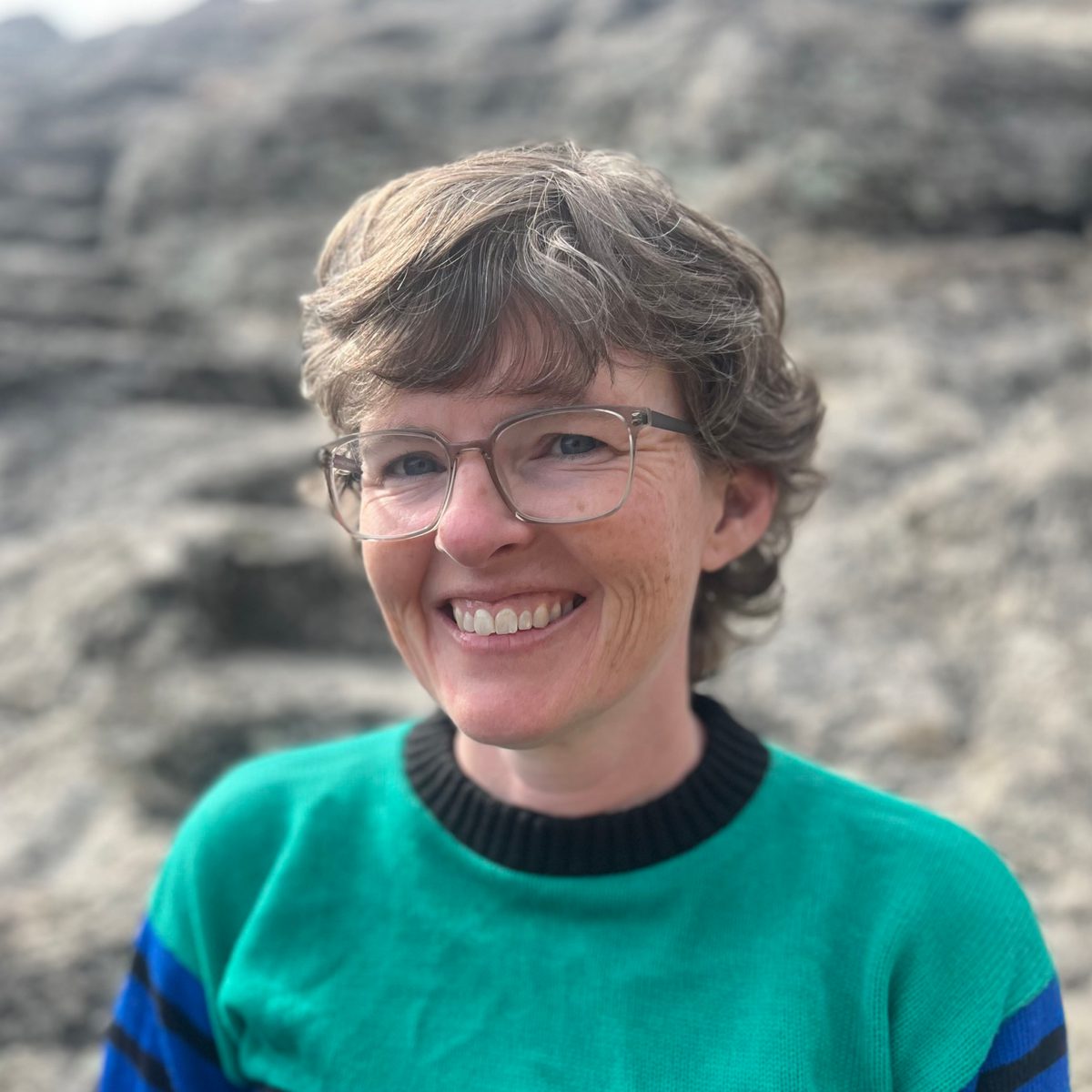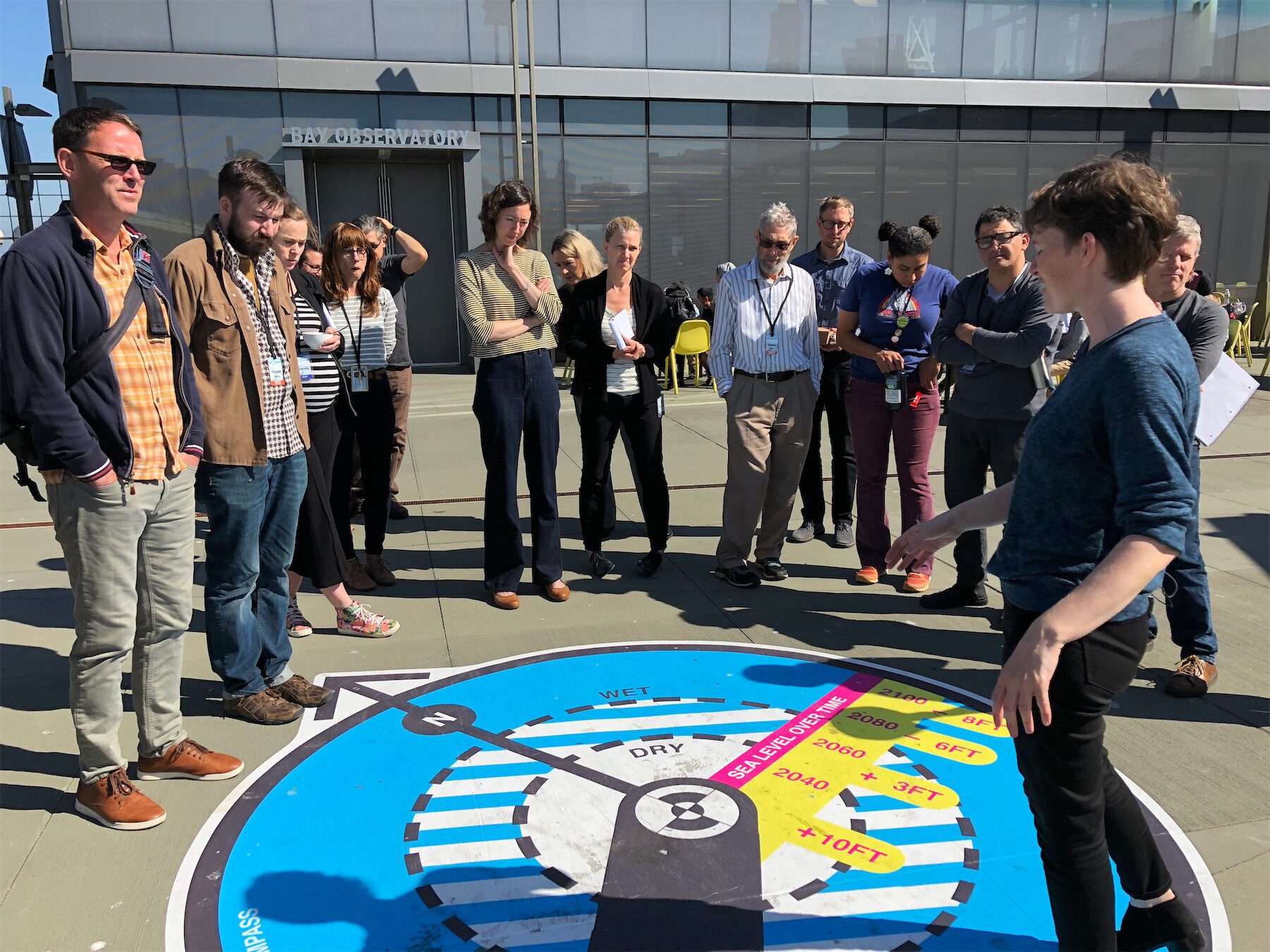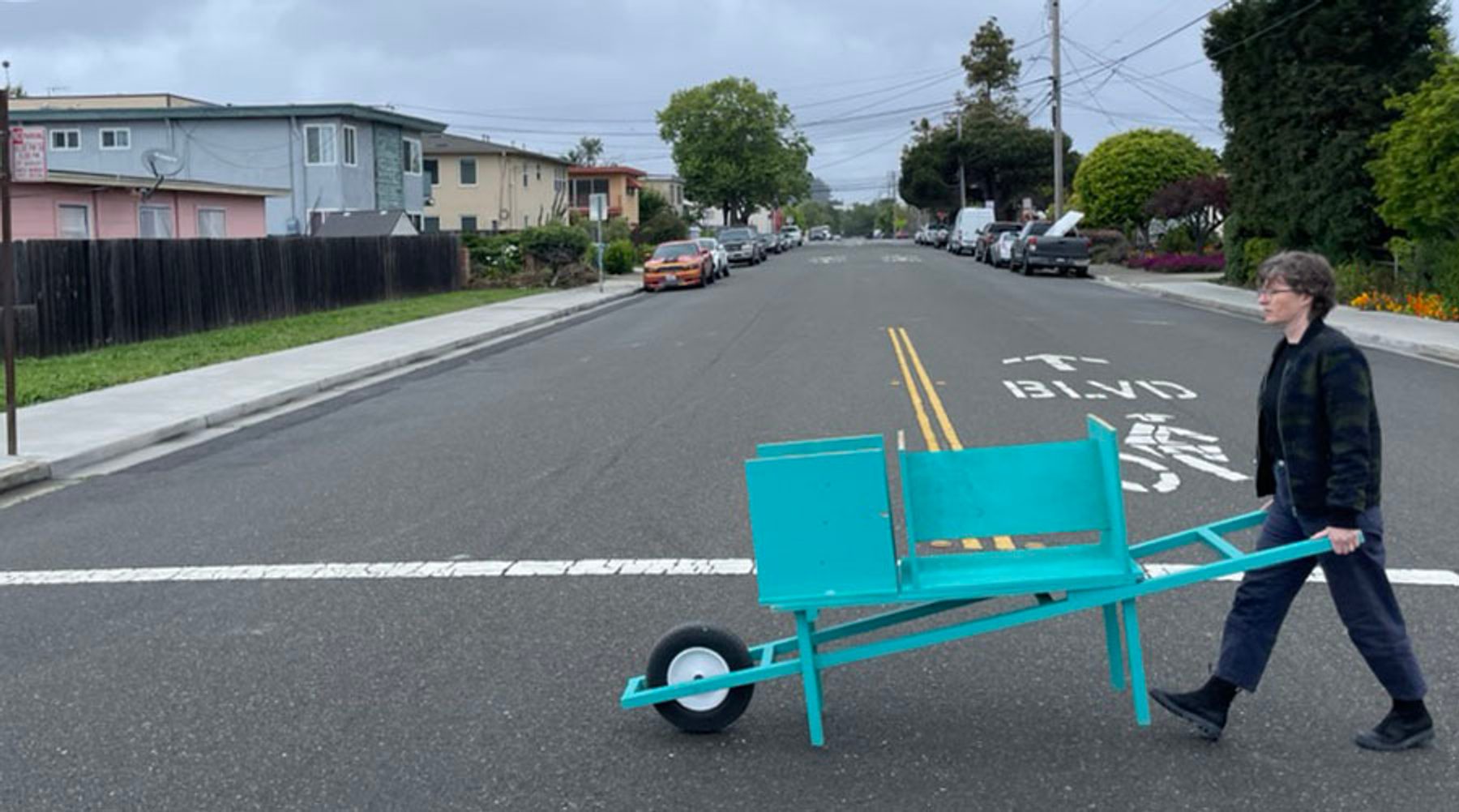Sara Dean Brings Visionary Design to the MDes Program

Sara Dean, designer, architect and principal of IF/THEN Studio, is joining the University of Michigan’s Stamps School of Art & Design with a mission to elevate design as a vital force for public good.
After a pause in Admissions, Dean will helm the relaunch of the MDes graduate program as the new director. She also joins the Stamps School as an associate professor with tenure.
Dean, who also recently served as an associate professor at California College of the Arts, is known for her research-driven practice exploring the intersection of digital technology, urban systems and community engagement. Her work focuses on civic and environmental adaptability, both in digital and physical media, with a strong commitment to open-access data and crowd-sourced production.
“It’s a rare and exciting opportunity to shape a distinct vision for design within a multidisciplinary institution like Stamps,” Dean said. “Design allows us to think about the future in specific, tactile ways — to make values and ethos visible in the world.”
Dean said her approach at Stamps will emphasize practice-based, multidisciplinary learning that encourages students to develop individual modes of design while connecting with community values and global impact. “I want students to locate their own center — how they want to work in the world — and develop a practice rooted in both making and meaning,” she said. “This means working across scales, from 2D to 3D, digital to physical, and connecting with real-world systems.”
Collaborative Design for the Common Good
A commitment to community is evident in Dean’s extensive body of work. Throughout her prolific career in academia and design, Dean has prioritized partnerships with stakeholders to find innovative solutions.
Among Dean’s recent collaborations is the Climate Compass project with the Exploratorium in San Francisco, developed alongside climate scientists. The installation visualizes the impact of sea-level rise through local climate data, helping communities understand environmental changes over the next century.

“It’s about turning the slow disaster of sea level rise into something legible and meaningful in public space,” Dean said. “It gives people a tool to talk about vulnerability and adaptability — whether in a park, a subway or a coastline.” Versions of the piece have been installed throughout the Bay Area as well as in Barcelona. The piece underscores how public infrastructure, not just homes, create our communities, and are at risk.
Dean’s recent installation in Seoul, Public Things Network, builds on five years of work with “public furniture” — bright, movable installations designed to activate underused public spaces. This new project uses GPS-tagged pieces to form a shareable network, offering an alternative to the privatized systems that dominate urban mobility today.

“Just like a shared scooter network, we want to build a shareable infrastructure — but for civic life,” Dean said. “It’s about helping people think of cities as commons — a shared resource to be shaped, protected and enjoyed together.”
Prototyping the Future
At IF/THEN Studio, Dean leads work across scales — from community engagements to exhibition design and urban research. The studio sees design as a speculative tool: a way to prototype more livable, resilient futures.
Dean has previously served as the R&D designer for BluHomes, and director of research and partnerships at Stamen Design. Her past collaborators include universities, the World Health Organization, OpenStreetMap, the Red Cross, and Detroit Resists.
“I see design as a practice of being together — of making space for agency, imagination and community,” Dean said. “It’s not just about the objects we create, but the futures we practice through them.”
Her work has been exhibited internationally at venues including Ars Electronica, Dutch Design Week and the Shenzhen Biennale. She continues to advocate for open-source knowledge systems and design that prioritizes equity, access and adaptability.